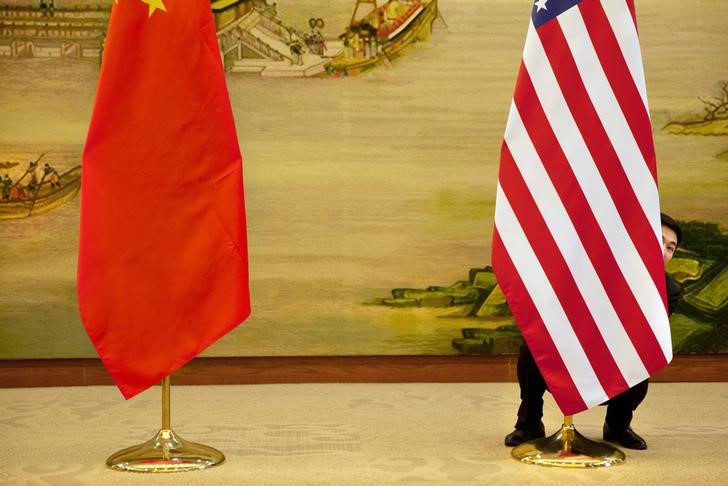Two 59%+ winners, four above 25% in Aug – How this AI model keeps picking winners
Investing.com-- U.S. President Donald Trump’s latest round of trade tariffs are expected to elicit a greater policy response from China, both on the retaliatory and stimulus front, ING analysts said on Thursday.
China was slapped with a cumulative 54% tariff by Trump, drawing ire from Beijing, who called on Washington to immediately cancel the duties or risk “resolute counter-measures.”
ING said Trump’s tariffs were higher than expected, and were likely to drag on Chinese growth and inflation this year. But given their outsized nature, the new tariffs risked a “stronger response both in terms of domestic stimulus and potential retaliation.”
ING said that the higher tariffs could result in a 0.4% to 0.8% drag in China’s 2025 gross domestic product, with Wednesday’s announcement pushing expectations to the upper end of the range.
ING said that supportive measures from China could include more monetary easing by the People’s Bank of China. Beijing has also outlined a host of fiscal measures aimed at supporting local consumption and businesses, and could also increase the scale of these measures.
In terms of retaliation, China could also block more U.S. imports and introduce increased export controls, while the path towards a potential trade deal remained narrow.
“Repeated escalations make the prospects of a grand bargain increasingly unlikely. China’s response to the latest measures will shed much light on how policymakers in China feel about the prospects of such a deal,” ING analysts said.
Based on Trump’s first term, where he had engaged in a protracted trade war with China, ING said that price-sensitive sectors with more substitution products, were the worst hit.
But on the other hand, China’s biggest export category to the U.S.- electrical machinery, equipment and parts, was not heavily impacted in the first trade war. Several Chinese exports still have limited-to-no alternatives, and tariffs are likely to be borne by U.S. importers, given that export volumes in these sectors remain robust.
ING said that the key question going forward is how the two countries will respond- whether they will negotiate or escalate.
But Sino-U.S. ties are already strained by disagreements over the handling of social media app TikTok. Trump’s extension to a Congress-approved ban on the app expires on April 5, with no buyer in sight for its U.S. operations.
This, coupled with concerns over the Panama Canal, strained relations between the world’s biggest economies.
